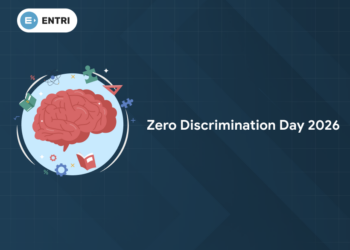Table of Contents
The Union Public Service Commission (UPSC) conducts civil service examinations every year. These exams are the steppingstone to many coveted government jobs. Hence it is not a big surprise if these tests are very difficult to crack. There are millions of people writing these exams and the competition is very fierce. So, serious preparation for a UPSC exam is a very lengthy process. The preliminary stage of the exam is a mere introduction to the difficulty of the competition that you are going to face in the rest of the recruitment stages. But there is not much time to prepare now. Here is a UPSC 3 Months Study Plan to alleviate your doubts and help you get started.
UPSC 3 Months Study Plan
To be able to study within three months, you should be focused on the goal with zero distractions. Even the preparation done within such a small-time frame can put you 1000s of positions ahead in the rank list. So, it’s not a small thing. As we say, better late than never! Right? Passing the UPSC exam on the first try is a very difficult thing to do. But this aim is achievable with hard work, good planning and time management. Before preparing a UPSC 3 Months Study Plan there are some crucial things to consider like the UPSC examination pattern and syllabus. Let us look into those details before advancing.
Register to learn UPSC topics in Malayalam lectures! Register now!
UPSC Prelims Exam Pattern
1: Which one of the following is not a Harappan site?
The UPSC prelims exam has two papers. They are:
| Paper | Nature Of Paper | Type of exam | Number of Questions | Duration of the exam | Marks allotted |
| Paper I – General Studies | Merit Ranking (Marks not counted in Final merit) | Objective | 100 | 2 Hours | 200 |
| Paper II – Aptitude Test (CSAT) | Qualifying | Objective | 80 | 2 Hours | 200 |
| Paper 1+ Paper 2= Total marks | 400 | ||||
Both paper 1 and paper 2 have negative marks. There will be a deduction of 1/3rd of the marks allotted for that particular question for every wrong answer marked. The negative marking scheme of the UPSC exam is provided below for your information.
| Paper | Number of Questions | Marks allotted for each question | Negative Mark given to wrong answers |
| General Studies-1 | 100 | 2 | 0.66 |
| General Studies-2 | 80 | 2.5 | 0.83 |
The UPSC exam pattern for the main exam is provided below.
| No. | Paper | Subject | IAS Total marks | Duration |
| 1 | Paper A | Compulsory Indian language | 300 | 3 hours |
| 2 | Paper B | English | 300 | 3 hours |
| 3 | Paper I | Essay | 250 | 3 hours |
| 4 | Paper II | General Studies I | 250 | 3 hours |
| 5 | Paper III | General Studies II | 250 | 3 hours |
| 6 | Paper IV | General Studies III | 250 | 3 hours |
| 7 | Paper V | General Studies IV | 250 | 3 hours |
| 8 | Paper VI | Optional I | 250 | 3 hours |
| 9 | Paper VII | Optional II | 250 | 3 hours |
UPSC 3 Months Study Plan for Prelims
There will be a time gap of 3 to 4 months between the UPSC prelims exam and the UPSC mains exam. So, a major portion of these three months should be dedicated to passing the prelims exam. We can focus on the mains after that. So let us look into the UPSC 3 Months Study Plan for prelims.
UPSC Prelims Syllabus
The first thing to do before planning the study strategy for any exam is to understand its syllabus very well. Let us look into the UPSC prelims syllabus.
Paper 1 General Studies Syllabus
The syllabus of Paper 1 General Studies of UPSC prelims is given below.
- Current affairs of national as well as international importance
- History of India
- History of the Indian National Movement
- Indian Geography
- World Geography
- Indian polity
- Indian governance
- Economic and social development in India
- Environmental ecology
- Climate change
- Biodiversity
- General Science
Paper 2 General Studies Syllabus
Paper 2 General Studies paper of the UPSC prelims is also known as CSAT. Its syllabus is given below.
- Comprehension
- Interpersonal skills
- communication skills
- Logical reasoning
- analytical ability
- Decision-making
- problem-solving.
- General mental ability
- Basic numeracy
- Data interpretation
- English language comprehension skills
UPSC Exam Cut-off Trends and Exam Analysis
What do you have to do now that you have a good grasp of the exam pattern and syllabus? You have to look into some of the most recent years’ question papers. This will help you understand which subjects have more marks weightage and from which portions the greatest number of questions are asked. The difficulty level of both papers can also be deciphered from this exercise. Then you have to compare the difficulty of each paper with the cut-off marks they required to pass. Doing all these will allow you to have a great idea about what subject or portion or even paper should you allocate more of your time to.
UPSC 3 Months Study Plan Dividing the Days Among Different Sections
A UPSC 3 Months Study Plan can work if you allot your time appropriately to each section. For this, you have to consider a few things before allocation. They are:
- The length of the portions coming under that particular section.
- The weightage of marks of the section is as per the latest exam trends.
- Your strengths and weaknesses from an academic point of view.
- The time you can allot for daily studies.
A sample UPSC 3 Months Study Plan prepared according to all the above-mentioned criteria is given below.
| Sections in the UPSC Prelims | Days Allocated for the said Section |
| History (Ancient Indian History) | 8 to 9 days |
| Modern History | 8 to 9 days |
| Science and Technology | 7 days |
| Polity and Governance | 14 to 15 days (Maximum 20 days) |
| Geography and Environment Science | 14 to 15 (Maximum 19 to 20 days) |
| Art and Culture | 6 to 7 days |
| Economy | 15 to 16 days (Up to 20 days) |
And when it comes to current affairs you have to prepare it daily. A few hours of daily study time should be strictly for the current affairs section. Also please customise the above provided UPSC 3 Months Study Plan according to your convenience and efficiency.
Preparation Strategy for UPSC 3 Months Study Plan
Now we have a plan. But a plan can work as it should only if your strategy is efficient. Let us look into some ways to make the plan work very well for us.
Realistic Expectations
We have prepared a UPSC 3 Months Study Plan above. But what you have to know is that you will not be able to cover the entire UPSC syllabus within three months. So set your expectations realistically. This applies to both situations, the hours you might be able to study daily and the portion you might be able to cover and revise before the exam. So please do not try to cram a whole subject as it is. You will lose much of your precious time. Select the most important portions from which most questions are asked.
Study the selected portions of each subject. Focusing your entire time on studying the whole history without leaving any topic under the portion will not help you gain 20 marks from the general science portion. Make sure that you cover the important topics under all the subjects rather than covering all the topics under one or two subjects.
Start With the Basics
Don’t go directly to reference books or books of famous authors. probably, you will not have the time for that. So, stick with the basic textbooks and easy-to-read ones. Start with NCERT textbooks. This will help you learn without being discouraged by looking at the sheer volume of portions you have to cover. Same with the paper two sections. Go for the easy-to-study materials rather than the overly hyped big books. You can use these heavy books for study when you have enough time for that.
Join the best Malayalam online UPSC coaching class of 2024!
Work When You Work
One very important thing that a UPSC aspirant must not forget is that you have to pay full attention to the task you are doing at present. Focus is the key to absorbing maximum information in a short period. The more you get distracted, the more you will fall behind on the deadlines. So always pay full attention to the task at hand and try your level best to achieve the amount of work you planned for the day.
All Work and No Play
As the proverb says, all work and no play make Jack a dull boy. It is important to be focused on your goal. But a proper amount of leisure and rest time should be given to the body. You should take occasional breaks while studying and do activities that you like so that your brain can freshen up. Studying continuously for hours might do more harm than good. Neglecting your mental and physical needs is not advisable. Eating and sleeping at the correct times should be a part of the strategy. No amount of learning and practice will help you on the day of the exam if you are continuously under nourished and sleep-deprived. Start your day with a dynamic activity like exercise, yoga, dance etc. Even a walk will do.
An active body is essential for a well-functioning brain and mind. But make sure that the leisure activities that you do during your study breaks are not too time-consuming or distracting, like a video game or a very lengthy movie. It should be something that allows your mind to slow down and your eyes to rest for a bit. You should also be able to get back to your studies from this activity without too much struggle.
Newspaper Reading
Make newspaper a part of your daily morning routine. This is where you get your awareness of the current events going on around the country as well as the world. Reading the newspaper will improve your language comprehension skills, vocabulary and current affairs knowledge. Reading newspapers will also give you the boost of knowledge you need about the current political situation that might come in handy when writing the answers or answering a question during an interview. Newspaper reading is not something that will help you to only get through the prelim exam. It is needed throughout the preparation term for UPSC.
Revision
Just reading or studying something for one time will not help you recall this information during the exam. Here is the importance of revision. You have to constantly revise and rerevise the already learned portion for successful recalling during the exam. A student can schedule the revision according to your convenience. You can revise everything you learned for the day by skimming through the notes you made while studying at the end of the day before sleep. Or you could get up early in the morning and start the day by revising the portions that you learned yesterday. Again, you have to revise everything at weekends. The weekends should be reserved for revision only.
Mock Tests and Practise Questions
Doing mock tests is very important when it comes to exam preparation. Mock tests are the only way to understand your knowledge level during the exam prep time. It will help you understand your strong and weak areas and the ways to manage time more effectively so that you can attempt more questions. Mock exams also help you to face the exam more confidently as it creates the experience of writing a real exam.
Multitasking
It is really difficult for some people to concentrate on a single subject for too long. You don’t have to allot one full day to a single subject. You can divide the days by hours and study different subjects a day. For example, when you get bored of studying science, you can learn something unrelated like English comprehension. This method of mixing up the study timings of easier subjects in between a subject with a massive portion to cover helps you to be not weighed down by boredom.
Quality Over Quantity
You should not run after all the study materials that are available in the market or the online stores. Huge reference books are not the ones that are going to help cover the maximum portion in this short period. So, try to start from the basics and choose simpler books. Buying too many books will finally end up being a loss of money as you don’t even get time to even skim through them each.
UPSC 3 Months Study Plan FAQs
- How many papers are there for UPSC prelims?
There are two papers for the UPSC prelims.
- How much time is available between UPSC prelims and UPSC mains exams?
There is a time gap of 3 or 4 months between the UPSC prelims and mains exam.










